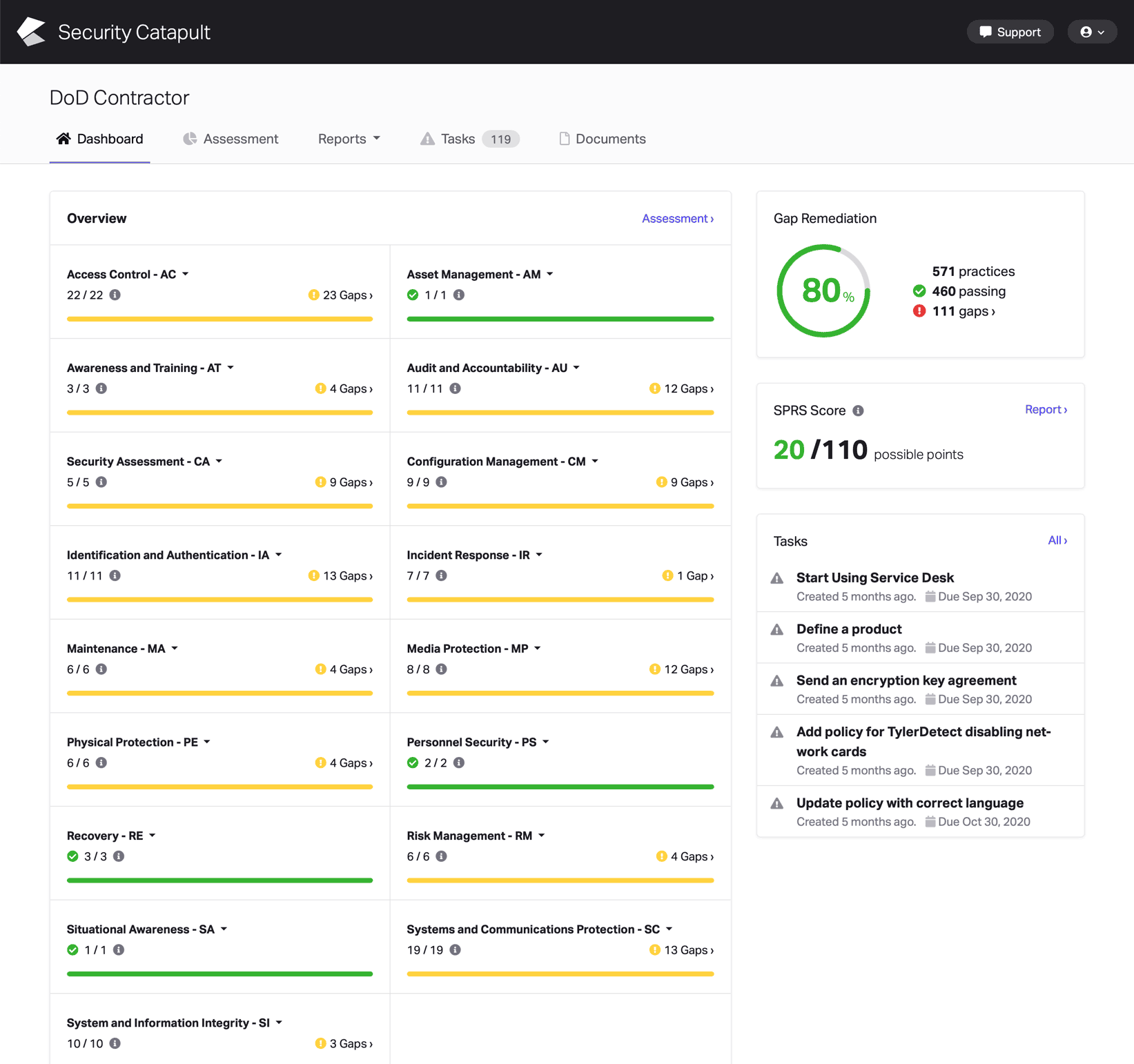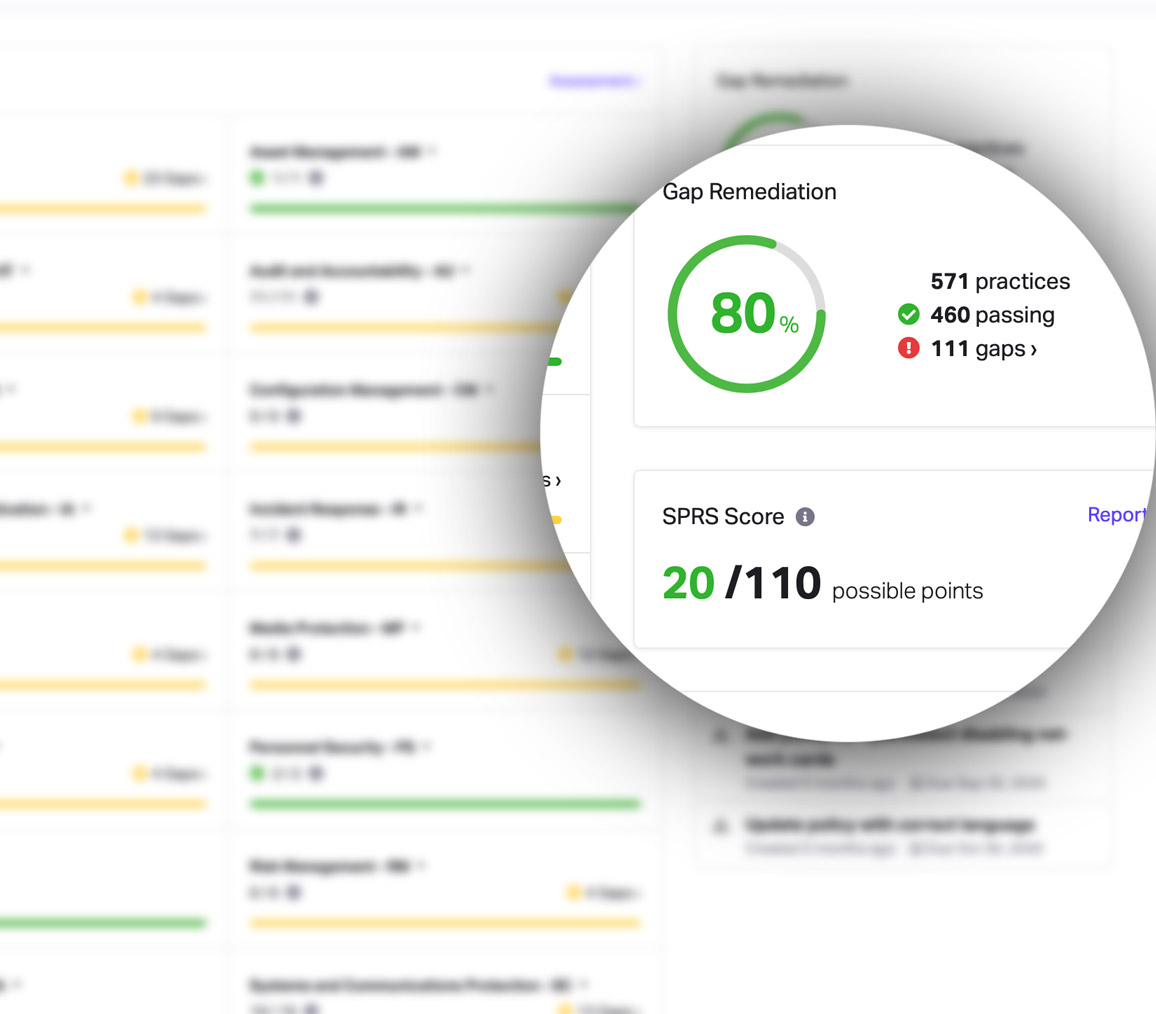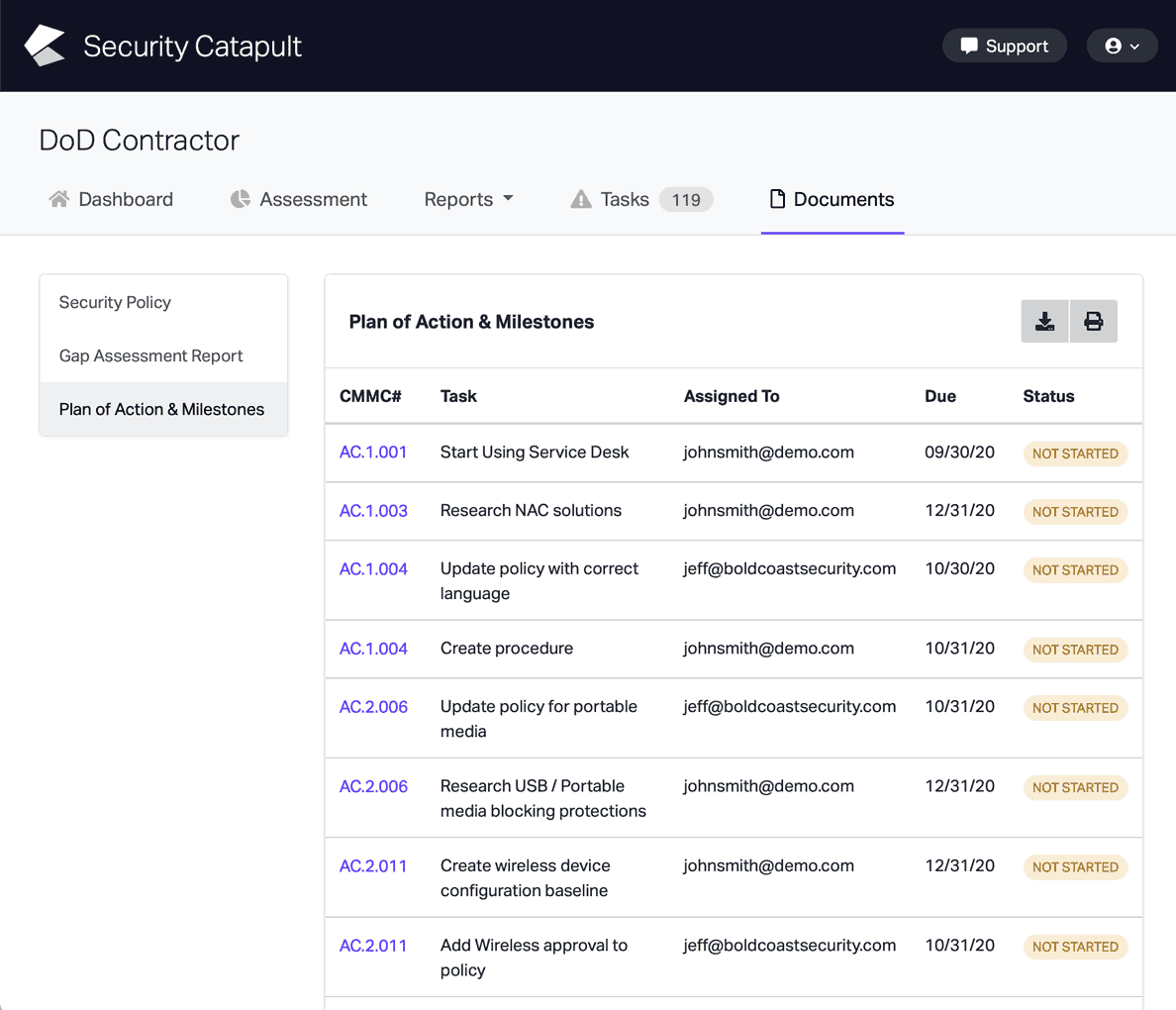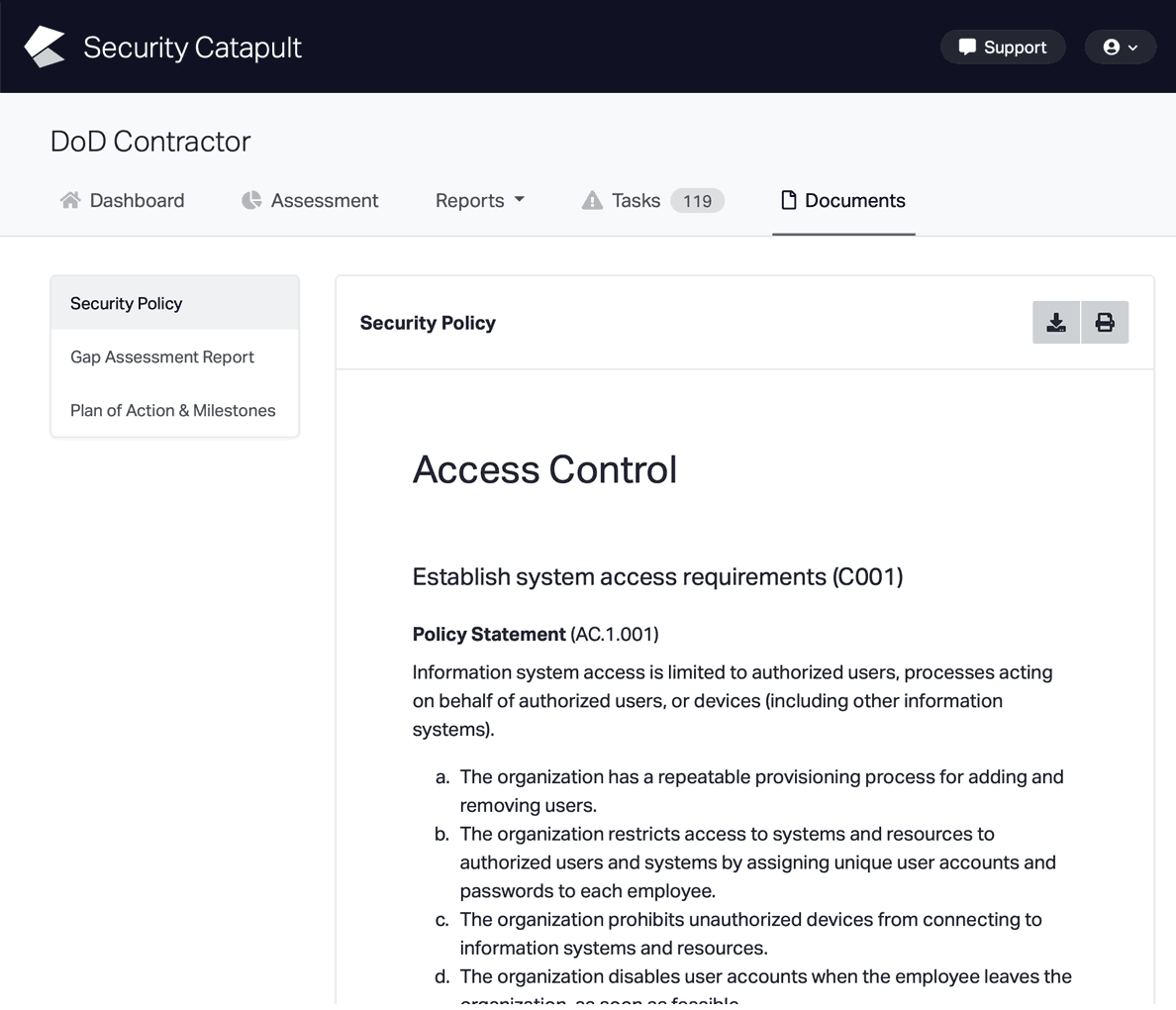CMMC Practice SI.L1-3.14.5
System & File Scanning: Perform periodic scans of organizational systems and real-time scans of files from external sources as files are downloaded, opened, or executed.
Monarch ISC Guidance
Discussion From Source
References
- FAR Clause 52.204-21 b.1.xv
- NIST CSF v1.1 DE.CM-4
- NIST SP 800-171 Rev 2 3.14.5
- CIS Controls v7.1 8.4, 8.7
- CERT RMM v1.2 VAR:SG3.SP1
- NIST SP 800-53 Rev 4 SI-3



